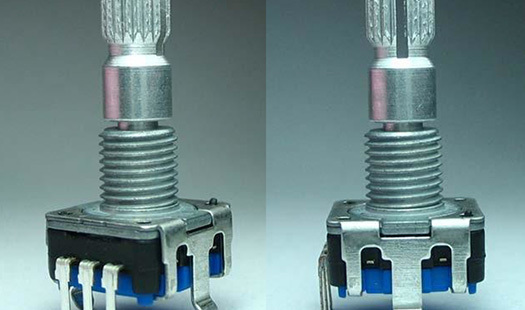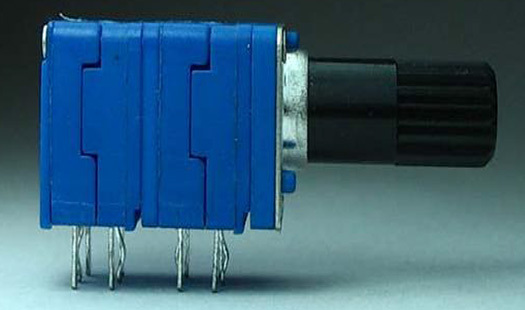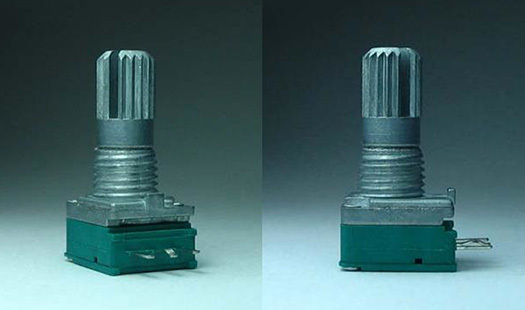Understanding Quality Sliding Potentiometers: Essential Insights for Electronics
Oct 20,2025
Sliding potentiometers, also known as slide pots, are crucial components in various electronic devices, primarily used for adjusting voltage levels and managing signal levels. These devices function through a variable resistor mechanism, allowing users to control the output by sliding a control knob along a designated path. The quality of a sliding potentiometer can significantly impact the perfor
Sliding potentiometers, also known as slide pots, are crucial components in various electronic devices, primarily used for adjusting voltage levels and managing signal levels. These devices function through a variable resistor mechanism, allowing users to control the output by sliding a control knob along a designated path. The quality of a sliding potentiometer can significantly impact the performance and reliability of the overall electronic system, making it essential for engineers and hobbyists to understand the attributes that define a quality component.
One of the primary factors that determine the quality of a sliding potentiometer is its construction. High-quality sliding potentiometers are typically made with durable materials that ensure longevity and consistent performance. The conductive element, which is responsible for altering resistance, is often made from materials like carbon or conductive plastic, both of which offer good wear resistance and low noise operation. Additionally, the sliding mechanism should be smooth and free from any jitters or skips, as this can affect the precision of signal adjustments.
Another essential aspect of quality in sliding potentiometers is their electrical specifications, including resistance range, power rating, and tolerance. A sliding potentiometer's resistance value should match the requirements of your specific application. A high-quality component will provide accurate readings and adjustments, which are critical in applications such as audio equipment, lighting controls, and other consumer electronics.
In applications where linearity is crucial, selecting a sliding potentiometer with excellent linearity characteristics becomes imperative. Linearity refers to how well the output voltage correlates with the position of the slider. A high-quality sliding potentiometer will maintain a consistent linear relationship, allowing for precise control over the output signal.
Moreover, environmental factors such as temperature and humidity can also affect the performance of sliding potentiometers. Therefore, when sourcing a quality sliding potentiometer, it is important to consider the component's environmental ratings. Components that can withstand varying conditions without compromising performance will result in a more reliable and long-lasting solution.
Lastly, a critical yet often overlooked aspect of quality sliding potentiometers is the manufacturer’s reputation. Reliable brands are usually associated with stringent quality control processes, ensuring that their products meet industry standards and provide dependable performance in various applications.
In conclusion, understanding the characteristics of quality sliding potentiometers is essential for anyone involved in electronics. By paying attention to factors such as construction, electrical specifications, linearity, environmental ratings, and manufacturer reputation, you can ensure that you select a sliding potentiometer that meets your project requirements effectively.
One of the primary factors that determine the quality of a sliding potentiometer is its construction. High-quality sliding potentiometers are typically made with durable materials that ensure longevity and consistent performance. The conductive element, which is responsible for altering resistance, is often made from materials like carbon or conductive plastic, both of which offer good wear resistance and low noise operation. Additionally, the sliding mechanism should be smooth and free from any jitters or skips, as this can affect the precision of signal adjustments.
Another essential aspect of quality in sliding potentiometers is their electrical specifications, including resistance range, power rating, and tolerance. A sliding potentiometer's resistance value should match the requirements of your specific application. A high-quality component will provide accurate readings and adjustments, which are critical in applications such as audio equipment, lighting controls, and other consumer electronics.
In applications where linearity is crucial, selecting a sliding potentiometer with excellent linearity characteristics becomes imperative. Linearity refers to how well the output voltage correlates with the position of the slider. A high-quality sliding potentiometer will maintain a consistent linear relationship, allowing for precise control over the output signal.
Moreover, environmental factors such as temperature and humidity can also affect the performance of sliding potentiometers. Therefore, when sourcing a quality sliding potentiometer, it is important to consider the component's environmental ratings. Components that can withstand varying conditions without compromising performance will result in a more reliable and long-lasting solution.
Lastly, a critical yet often overlooked aspect of quality sliding potentiometers is the manufacturer’s reputation. Reliable brands are usually associated with stringent quality control processes, ensuring that their products meet industry standards and provide dependable performance in various applications.
In conclusion, understanding the characteristics of quality sliding potentiometers is essential for anyone involved in electronics. By paying attention to factors such as construction, electrical specifications, linearity, environmental ratings, and manufacturer reputation, you can ensure that you select a sliding potentiometer that meets your project requirements effectively.
More Information
More Information
RECOMMENDED










